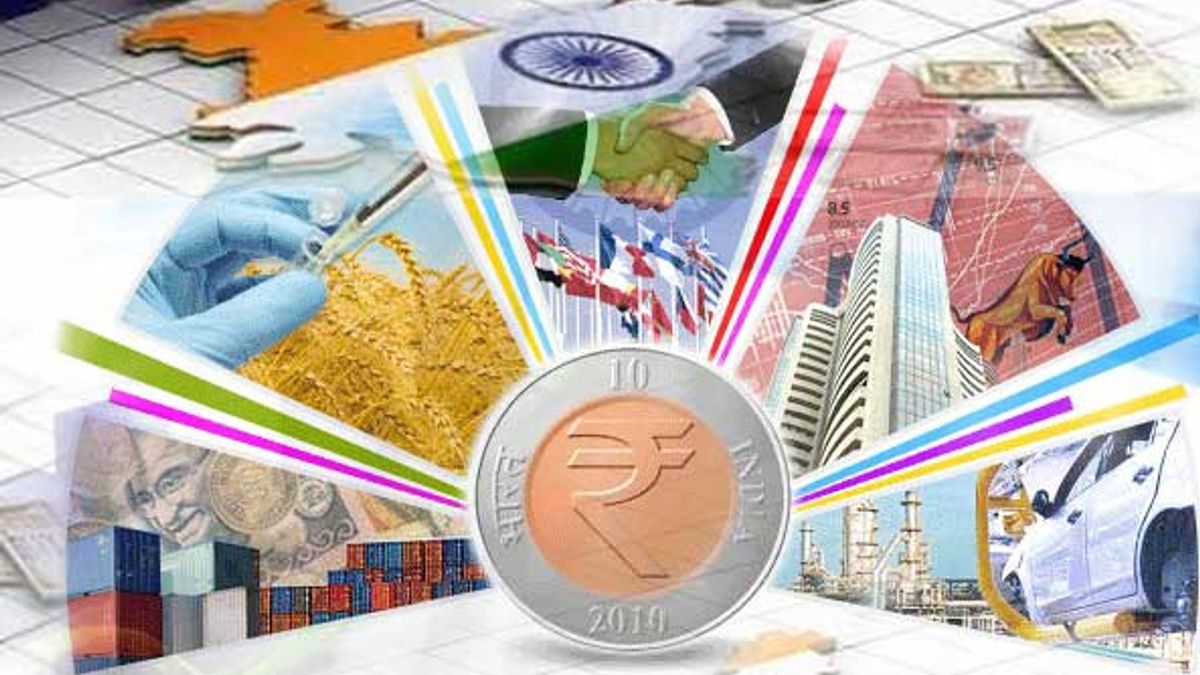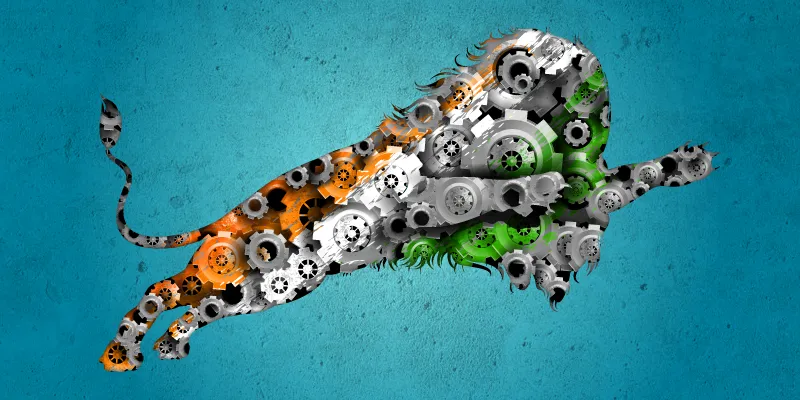India’s Struggle for Wheat In The 1960s, From Degraded Shipment From The United States To The Current Wooing Of India, How Times Have Changed For India, From Dependence to Dignity
India has become a significant player in international relations and global development efforts. From the chequered past with the United States to the current wooing of India, if we go back in history, the mid-1960s was a challenging time for India as it faced severe droughts and a lack of foreign reserves, compounded by its status as a newly independent nation, India then relied on American assistance, particularly in the form of wheat under the PL480 program. However, the quality of the grain provided became a subject of criticism, with some referring to it as "fit enough only for pigs"; as a nation, we have come a long way from that point!

India is emerging as a major global player in recent times, with a rapidly growing economy and an equally dynamic society. Today, the country has made tremendous progress in various sectors, including technology, space exploration, and renewable energy, along with an equally robust IT industry, India has today become a hub for innovation and entrepreneurship, housing some of the world’s leading technology companies and a thriving startup ecosystem.
Thus, it is rightly so that the world is positively recognizing India’s emergence in the global arena, and world leaders are keenly watching the ongoing diplomatic visit of Prime Minister Narendra Modi to the United States as India takes center stage.
However, these remarkable achievements in the current were not the case in the past, particularly regarding our diplomatic and bilateral relations with the United States of America. An example of the same can be seen in the mid-1960s, a period which was marked with tough challenges both as a newly independent nation with a lack of foreign reserves and as a country that faced extreme weather calamities such as severe droughts.
India’s Past With The United States
India relied on American assistance, in this dire situation, particularly in the form of wheat, under the PL480 program. However, the quality of the grain provided became a subject of criticism, with some referring to it as “fit enough only for pigs.”
India, in order to secure this much-needed assistance, had to engage in negotiations and ultimately signed a long-term PL-480 agreement to receive food aid, and over time, this agreement underwent multiple revisions.
However, by the late 1960s, this agreement was terminated, and India was required to implement policy changes, which included privatization of the industrial sector, in exchange for continued food aid.
Thus, India endured a sense of humiliation and dependence for decades, facing challenges even in acquiring basic necessities like food. Meeting Americans often evoked feelings of inferiority among many Indians. However, the times have since changed, and how the nation has undergone a significant transformation since then.
So what are the reasons for the change of attitude in America’s eyes when it comes to India?

The Emergence Of India Powerhouse
Firstly, Indians have achieved outstanding success in the business world, with many individuals establishing and leading some of the world’s largest corporations. It is worth citing that some Indians have settled abroad permanently, thus further expanding their influence and impact. Thereby, the global presence of Indian entrepreneurs and executives has showcased the talent and potential of the Indian workforce.
Secondly, there is a major change in the form of culture of innovation and entrepreneurship that has taken root in India. This transformation is no doubt possible because of the dedicated efforts of multiple generations of hard-working people, scientists, engineers, social workers, artists, and more, and they have collectively worked towards changing the Indian narrative from one of inferiority to one of pride and achievement.
Over the past decade, India has undergone significant transformations, emerging as a beacon for the world in various facets. The nation has made remarkable progress in areas such as technology, entrepreneurship, international cooperation, and societal development.
The rise of India as a global technological powerhouse is witnessing a booming tech industry, with the establishment of numerous startups and the presence of major multinational corporations.
Cities like Bengaluru have become hubs for innovation and entrepreneurship, attracting talent from around the world. Indian engineers and software developers have made substantial contributions to cutting-edge technologies, including artificial intelligence, machine learning, and software development.
Also, the success of Indian companies like Infosys, Tata Consultancy Services (TCS), and Wipro on the global stage has further solidified India’s position as a leader in the technology sector.

India In The Global Arena
India has become a significant player in international relations and global development efforts, and the country has increased its engagement with other nations, both economically and diplomatically.
India has actively partaken in initiatives such as the International Solar Alliance, focusing on renewable energy, and has expanded its involvement in peacekeeping operations under the United Nations.
Today, India has strengthened its ties with countries across various regions, enhancing trade, cultural exchanges, and people-to-people connections.
India As A Humanitarian Nation
India’s commitment to humanitarian efforts and sharing resources with other nations has also been commendable, and the country has extended assistance and support during times of crisis, providing aid and relief to countries facing natural disasters, health emergencies, or food shortages. India’s ability to leverage its own resources to contribute to global well-being is well reflected in a growing sense of responsibility and empathy.
Prime Minister Narendra Modi’s Global Agenda
Prime Minister Narendra Modi has gained growing importance in the global arena due to his leadership, policies, and initiatives, which have garnered attention and recognition from various countries worldwide.
Under his leadership, India has seen a significant shift in its global standing, with PM Modi actively engaging in diplomatic efforts and promoting India’s interests on the international stage, and there are several factors that contribute to PM Modi’s growing significance in the global arena.
Firstly, PM Modi’s focus on economic reforms and development has resonated with global leaders and investors. His flagship initiatives, such as “Make in India,” “Digital India,” and “Startup India”, have aimed to boost economic growth, attract foreign investment, and foster innovation. Thus, these initiatives have helped in capturing the attention of the global business communities and positioned India as an attractive destination for trade and investment.
Secondly, PM Modi has actively pursued diplomatic engagements by embarking on numerous foreign visits and engaging with world leaders and participating in international forums has further strengthened India’s bilateral relationships and expanded its global outreach. His proactive approach has resulted in enhanced cooperation and strategic partnerships with countries across the globe, including the United States, Japan, Israel, and countries in Europe and Africa.

Similarly, PM Modi’s emphasis on renewable energy and climate change has positioned India as a key player in global efforts to address environmental challenges. The same can be seen in the launch of the International Solar Alliance (ISA) in collaboration with France, and India’s commitment to clean energy has been recognized and applauded internationally.
Thus, India’s ambitious renewable energy targets and efforts to transition to a sustainable economy have positioned the country as a global leader in climate action.
PM Modi’s role in addressing regional security concerns has also contributed to his growing importance as he has focused on strengthening regional alliances and promoting stability in South Asia.
Moreover, during Covid -19 pandemic, PM Modi’s leadership was widely acknowledged for his proactive approach to managing the crisis, promoting vaccine diplomacy, and providing medical aid to other nations.
India Still Has A Lot To Achieve
However, while India has made significant strides, it continues to face challenges that require introspection and proactive solutions. Issues such as high taxation, wealth inequality, corruption, and social disparities demand attention and concerted efforts from the government. It is crucial for India to encourage rational debates and constructive discussions to identify and address these challenges effectively.
The Last Bit: India’s journey from a nation seeking assistance to becoming a beacon for the world has been marked by resilience, unity, and collective efforts. India’s transformation and progress over the last decade are a testament to the resilience, determination, and collective efforts of its people.
By embracing innovation, fostering entrepreneurship, and emphasizing social development, India has positioned itself as a global player and a source of inspiration for other nations.
However, as India continues to grow and evolve, it must remain committed to inclusive growth and sustainable development; coupled with advancements in various fields, at the same time, it is crucial to acknowledge the existing challenges and promote rational debates to drive positive change and foster inclusive growth.




